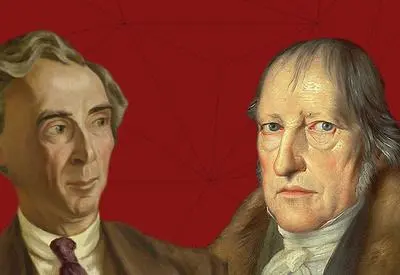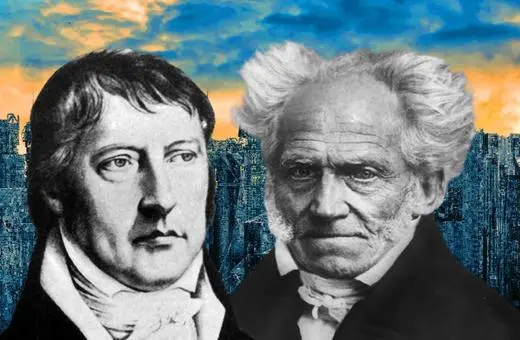According to French philosopher Jacques Derrida, western metaphysics has suffered from a long-standing hung-up. Philosophers from Plato onwards have idealised the present, positing it as an ideal, pure, timeless form of reality, to be contrasted with the messiness of life that exists in time, interconnected with the past and the future. But simply recognising that this pure “now” that philosophers have postulated isn’t anything like the human “now”, always within history and embedded in a web of meaning, doesn’t mean that Derrida was able to overcome metaphysics altogether. To the extent to which our language already carries with it the history of western philosophy, there is no leaving it behind; there is no going beyond metaphysics, writes Peter Salmon.
In January 1954, the philosopher Jacques Derrida, then 24 and just back from a summer in his Algerian home, visited the Husserl Archives in Louvain, Belgium. The archive had been founded in 1938, shortly after Husserl’s death, in order to protect his corpus from the Nazi authorities. Smuggled out by the Franciscan Father Herman Leo Van Breda, the archive contains more than 45,000 shorthand pages, Husserl’s complete research library and 10,000 pages of typescripts.
 SUGGESTED READING
The Return of Idealism: Russell vs Hegel
By Paul Redding
But it was a small paper of no more than 30 pages, working title The Origin of Geometry, which was to spur a revolution in Derrida’s thinking which would inform, with astonishing consistency, his work for the rest of his life, across a vast range of subjects – from traditional philosophical subjects such as meaning, language, ethics and religion, to issues such as gender, colonialism, film and hospitality. His first book was a translation of Husserl’s paper, its 30 pages ‘supplemented’ – to use a Derridean term – with an introduction of over 100 pages. In this introduction lay the seeds of all his later philosophy, and the terms forever associated with his name – deconstruction, differance, iteration and, crucially ‘the metaphysics of presence’ – Derrida’s vital contribution to the calling into question of the whole basis of Western metaphysics.
SUGGESTED READING
The Return of Idealism: Russell vs Hegel
By Paul Redding
But it was a small paper of no more than 30 pages, working title The Origin of Geometry, which was to spur a revolution in Derrida’s thinking which would inform, with astonishing consistency, his work for the rest of his life, across a vast range of subjects – from traditional philosophical subjects such as meaning, language, ethics and religion, to issues such as gender, colonialism, film and hospitality. His first book was a translation of Husserl’s paper, its 30 pages ‘supplemented’ – to use a Derridean term – with an introduction of over 100 pages. In this introduction lay the seeds of all his later philosophy, and the terms forever associated with his name – deconstruction, differance, iteration and, crucially ‘the metaphysics of presence’ – Derrida’s vital contribution to the calling into question of the whole basis of Western metaphysics.
How do we know stuff about the world? Husserl wrote in a letter to the mathematician Gottlob Frege that he was ‘tormented by those incredibly strange realms: the world of the purely logical and the world of actual consciousness… I had no idea how to unite them, and yet they had to interrelate and form an intrinsic unity.’ His first attempts had been via mathematics. By analysing what a number is – something that ‘exists’ or something humans ‘create’, he thought he would be able to establish a relationship between consciousness and the world. It was Frege’s criticism of this attempt due to its ‘psychologism’, that is its dependence on the internal mental states of the subject rather than the logical relations at hand, which spurred Husserl to his subsequent investigations.
What if, Husserl argued, we put aside the question of ‘the world’ entirely, and look simply at consciousness? Whether something exists or not is both moot and distracting. Husserl introduced the concept of the ‘epoché’, – from the ancient Greek, meaning ‘suspension of judgement’. We ‘bracket’ the world, what is important is not whether this tree exists, but how we encounter it, how it affects us. The job of philosophy is to describe these affects, and to build concepts from them which we can later extend outwards.





















Join the conversation